










































































































































































































































































































































































































































































































































































































































































































Beethoven never actually called his Fifth Piano Concerto ‘The Emperor’ –it just seemed perfect for a piece that’s so magnificently larger than life. So, who better to play it than Francesco Piemontesi, a pianist who, according to one critic, ‘puts the music first’? Thomas Søndergård joins him on an adventure that begins with the fresh sounds of our 2021:22 Composers’ Hub winner Lisa Robertson, and ends with the storms, struggles and soaring melodies of Brahms’ epic final symphony.
LISA ROBERTSON am fìor-eun [8’]
RSNO Composers’ Hub Winner 2021:22 WORLD PREMIERE

BEETHOVEN Piano Concerto No5 in E flat major Op73 Emperor [38’]
BRAHMS Symphony No4 in E minor Op98 [41’]
Thomas Søndergård Conductor Francesco Piemontesi Piano Royal Scottish National OrchestraUSHER HALL, EDINBURGH
Fri 27 Jan 2023 7.30pm
GLASGOW ROYAL CONCERT HALL
Sat 28 Jan 7.30pm
The Glasgow performance will be recorded for the RSNO Archive. Supported by the Iain and Pamela Sinclair Legacy.
If viewing these notes at the concert, please do so considerately and not during performances. Please silence all mobile telephones and alerts, and refrain from taking photographs, without flash, until the end of each piece.

Welcome to this evening ’s concert. We are thrilled to be back on stage with Music Director Thomas Søndergård for our first Season concert of 2023 and the beginning of the Orchestra’s much-anticipated Brahms Symphony cycle. We are also delighted to welcome Francesco Piemontesi, who performs Beethoven’s majestic Fifth Piano Concerto, the Emperor.
Tonight’s performance opens with the premiere of am f ìor-eun, a new commission by Lisa Robertson, selected from the 2021:22 RSNO Composers’ Hub cohort, who worked with composers Stuart MacRae and David Fennessy and RSNO mentors to develop their skills in composition. The piece explores Lisa’s connection to Scotland’s natural environment, inspired by her rural home in the West Highlands. Her relationship with the environment and the need to protect it resonated with the selection panel. It is encouraging to see emerging composers using music to raise awareness around the important issues of our time.
This month we launched our 2023 National Schools Concert Programme, working with illustrator James Mayhew to introduce children across Scotland to classical music – for free –with repertoire and tales that will be used to support children’s education around climate issues. I hope that the Programme will inspire the next generation to continue Lisa’s work. This evening I am reminded of the importance of the partnerships we have formed to deliver our concerts and Engagement programmes. Our three-year partnership with the Dunedin Consort got underway last year – you may have been at the side-by-side performance of Jörg Widmann’s Echo-Fragmente On Saturday 11 February we welcome the Consort and guest director Peter Whelan to Glasgow for an evening of Haydn symphonies. I hope to see many of you there and look forward to developing this collaboration further over the coming Seasons.
Tonight we bid farewell to Christopher Gough, who leaves the Orchestra after six years as Principal Horn. We have been fortunate to see Chris develop his talents in composition since he joined the RSNO and have performed his work on tour and at the BBC Proms. I wish Chris the best of luck and will undoubtedly watch his career continue to flourish. Chris has been kindly supported by the Springbank Distillers Chair, and on his behalf I would like to extend our thanks to Hedley Wright for his long-standing encouragement and support.
Alistair Mackie CHIEF EXECUTIVE








































































Thomas Søndergård 1
MUSIC DIRECTOR Elim Chan 2
PRINCIPAL GUEST CONDUCTOR Neeme Järvi 3
CONDUCTOR LAUREATE Alexander Lazarev 4 CONDUCTOR EMERITUS Kellen Gray 5
ASSISTANT CONDUCTOR Stephen Doughty 6 DIRECTOR, RSNO CHORUS Patrick Barrett 7 DIRECTOR, RSNO YOUTH CHORUS
FIRST VIOLIN
Maya Iwabuchi LEADER 8 Sharon Roffman LEADER 9 Lena Zeliszewska 10
ASSOCIATE LEADER
Tamás Fejes ASSISTANT LEADER 11
Patrick Curlett ASSISTANT PRINCIPAL 12
Caroline Parry 13 Ursula Heidecker Allen 14
Lorna Rough 15 Susannah Lowdon 16 Alan Manson 17 Elizabeth Bamping 18 Liam Lynch 19
SECOND VIOLIN
Jacqueline Speirs 20 ASSOCIATE PRINCIPAL Marion Wilson ASSOCIATE PRINCIPAL 21 Nigel Mason 22 Paul Medd 23 Harriet Hunter 24 Anne Bünemann 25 Sophie Lang 26 Robin Wilson 27 Emily Nenniger 28
Tom Dunn PRINCIPAL 29 Felix Tanner
ASSOCIATE PRINCIPAL VIOLA 30 Asher Zaccardelli ASSISTANT PRINCIPAL 31 Susan Buchan SUB PRINCIPAL 32 Lisa Rourke SUB PRINCIPAL 33 Nicola McWhirter 34 Claire Dunn 35 Katherine Wren 36 Maria Trittinger 37 Francesca Hunt 38
Betsy Taylor ASSOCIATE PRINCIPAL 39 Kennedy Leitch ASSISTANT PRINCIPAL 40 Rachael Lee 41 Sarah Digger 42 Robert Anderson 43 Gunda Baranauskaitė 44
Margarida Castro 45 ASSOCIATE PRINCIPAL Michael Rae ASSISTANT PRINCIPAL 46 Sally Davis 47 Aaron Berrera Reyes 48
Katherine Bryan PRINCIPAL 49 Helen Brew ASSOCIATE PRINCIPAL 50 Janet Richardson 51 PRINCIPAL PICCOLO
Adrian Wilson PRINCIPAL 52 Peter Dykes ASSOCIATE PRINCIPAL 53 Henry Clay PRINCIPAL COR ANGLAIS 54
Timothy Orpen 55
PRINCIPAL CLARINET Duncan Swindells 56 PRINCIPAL BASS CLARINET
David Hubbard PRINCIPAL 57 Luis Eisen ASSOCIATE PRINCIPAL 58 Paolo Dutto 59 PRINCIPAL CONTRABASSOON
HORN
Christopher Gough PRINCIPAL 60 Alison Murray ASSISTANT PRINCIPAL 61 Andrew McLean 62 ASSOCIATE PRINCIPAL David McClenaghan 63 Martin Murphy ASSISTANT PRINCIPAL 64
TRUMPET
Christopher Hart PRINCIPAL 65
Dávur Juul Magnussen PRINCIPAL 66 Lance Green ASSOCIATE PRINCIPAL 67 Alastair Sinclair 68 PRINCIPAL BASS TROMBONE
John Whitener PRINCIPAL 69
TIMPANI
Paul Philbert PRINCIPAL 70
PERCUSSION
Simon Lowdon PRINCIPAL 71 John Poulter ASSOCIATE PRINCIPAL 72
Fìor-eun, a poetic Gaelic word for eagle, meaning ‘true bird’, i.e. bird of birds, appears in place names near my home, in the heart of Scotland’s eagle country, on the Sound of Mull, and in a local song from which some of this piece’s material derives. I greatly admire our local eagles, particularly the characteristically introverted golden eagles. They have fantastic 340-degree vision and a telescopic magnifier, seeing five times further than us and in five vivid colours. They are nature in perfect balance; masters of the airspace, with perfectly controlled flight modes, including free-falling, power-climbing, corkscrewing, sky-dancing and 200mph dive-bombing. The piece reflects these, while switching focus with five simultaneous, vibrantly coloured rhythms, imitating a hovering eagle’s perception of the landscape.
Sea eagles, once hunted to extinction in Scotland, were reintroduced locally in the 1970s and will soon outnumber golden eagles. These striking, extroverted birds delight human observers but can’t match the golden eagles’ flying skills. Now cohabiting, the sea/golden eagle relationship has been described as ‘armed neutrality’. The skyscape is changing unnaturally and unpredictably fast.
During the last five years, eagles have struggled to breed owing to climate change’s seasonal disruption bringing late springs, biodiversity loss and lack of prey. Our peninsula had ten breeding pairs of golden eagles a decade ago and now has only one or two. Their way of life and sheer existence is threatened.
I feel my small rural community reflected in the eagle crisis. A threatened sense of identity, territories under pressure, struggling populations, pressure from outside forces and from a damaged, dangerous environment. With outside forces, human and environmental, impacting the right/ability to belong to this land, who really are the true birds here now?
© Lisa RobertsonComposers’ Hub 2021:22 was supported by PRS Foundation’s The Open Fund for Organisations, RVW Trust, The Fenton Arts Trust, Thriplow Charitable Trust and RSNO New Works Patron, Susie Thomson.
Lisa Robertson is a composer from the West Highlands of Scotland, particularly interested in combining sounds from nature and traditional music, examining relationships between people and the land, and highlighting environmental concerns. She is the RSNO Composers’ Hub Winner 2021:22.
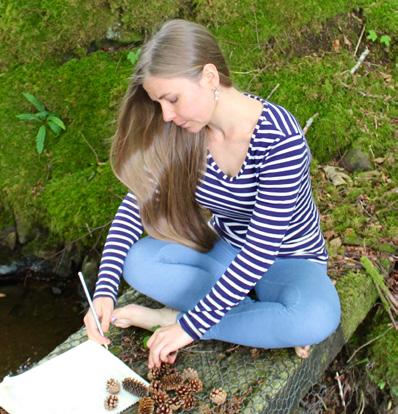
Her music has been recorded by The Sixteen and performed by the Czech Philharmonic Orchestra, EXAUDI, The Sixteen, Red Note Ensemble, Psappha Ensemble, Hebrides Ensemble, Lucy Schaufer and Heather Roche, among others. Lisa’s music has appeared at festivals including Huddersfield Contemporary Music Festival (where she also performed her own solo violin piece in 2019), Cheltenham Music Festival, West Cork Chamber Music Festival, Sound Festival and on BBC Radio 3, BBC World Service and BBC Radio Scotland. She has been shortlisted three times for the Scottish Awards for New Music and featured in BBC Music Magazine’s ‘Rising Stars’ column.
Lisa recently completed a PhD at the Royal Conservatoire of Scotland with Emily Doolittle and William Sweeney. She has attended masterclasses with Brian Ferneyhough at the Ferienkurse in Darmstadt and the late Sir Harrison Birtwistle at Dartington International Summer School, and workshops with Royal Northern Sinfonia, the Bozzini Quartet and the Ligeti Quartet. She took part in the National Youth Choirs of Great Britain’s Young Composers Scheme 19/20, which led to pieces being published by Stainer & Bell and Choir & Organ magazine and a work being released by NMC Recordings.
What a destructive, unruly life around me! Nothing but drums, cannons, human misery of every sort!’ So wrote Beethoven from wartorn Vienna to his Leipzig publisher Gottfried Christoph Härtel in July 1809.
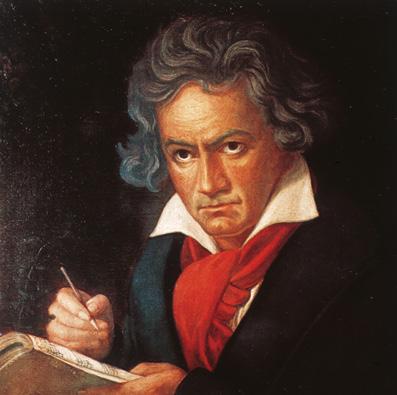
FIRST PERFORMANCE
Leipzig, 28 November 1811 DURATION 38 minutes
To say that life was tough for the composer at the time he wrote the Emperor Concerto would be an understatement. Napoleon’s forces had invaded Vienna in May 1809, and at one stage the fighting grew so frighteningly close that Beethoven was forced to take shelter in a poet friend’s basement – where he covered his head with pillows in the hope of protecting what precious hearing he had left. And with the city’s finances heavily affected by the conflict, the annual payment he’d been promised by several of the city’s noblemen was severely reduced.
It’s a wonder that Beethoven was able to write music at all, let alone produce his longest, grandest and most ambitious concerto, whose nobility and virtuosity encapsulates the heroic style of his middle period. It was also the first of his piano concertos that Beethoven didn’t premiere himself – the honour went to Friedrich Schneider, with Leipzig’s Gewandhaus Orchestra in November 1811, to great acclaim. By that time, Beethoven’s deafness had progressed to such an extent that for him to perform as a soloist was out of the question.
Nor does the work’s Emperor nickname have anything to do with Beethoven. In fact, it’s highly unlikely he would have approved: he would have seen the word as an unavoidable reference to the invader Napoleon, who had plummeted from the composer’s esteem. Where it came from is unclear: some say it was coined by the work’s English publisher, John Cramer, to sell more copies. In any case, the word perfectly encapsulates the piece’s grand vision, which looks forward to the virtuosic pianism of later figures such as Franz Liszt.
The broad chords of the expansive first movement’s opening would have been strikingly original in Beethoven’s time, as would the cascading scales and trills with which the piano answers them. The piano then falls silent as the orchestra reveals the movement’s two main themes – the first on violins, the second taken up nobly on horns – before returning with its own visions of the same melodies, which are developed throughout the rest of the movement.
The calm, reflective slow movement is one of Beethoven’s most tender creations, with the piano floating filigree song melodies over a serene string chorale. It leads directly into the boisterous final movement, the soloist hesitantly trying out its dance-like main theme before suddenly bursting forth with it loudly and confidently.
© David Kettle5 Feb George, Prince of Wales, became Prince Regent as a result of the perceived insanity of his father, George III
22 Mar The Commissioners’ Plan for Manhattan’s gridded street pattern was presented
25 Mar The Great Comet of 1811, visible to the naked eye for around 260 days, was first discovered by Honoré Flaugergues
14 Jun Harriet Beecher Stowe, abolitionist and author of Uncle Tom’s Cabin, was born in Litchfield, Connecticut
13 Jul George Gilbert Scott, English Gothic Revival architect of, among others, the St Pancras railway station hotel, was born
14 Jul Italian scientist Amedeo Avogadro published his memoir on the molecular content of gases
22 Oct Hungarian composer and pianist Franz Liszt was born
4 Nov Factory employees destroyed industrial machines in Bulwell near Nottingham, the first of what came to be known as the Luddite uprisings
7 Nov At the Battle of Tippecanoe, American troops under Governor of Indiana territory and later 9th US President William Henry Harrison, defeated the forces of Native American spiritual leader Tenskwatawa
17 Nov José Miguel Carrera, the founding father of Chile, was sworn in as President
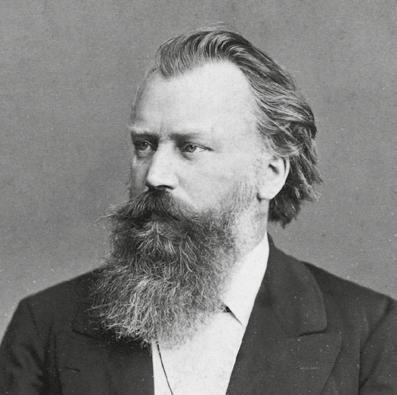
Meiningen, 25 October 1885 DURATION 41 minutes
Beethoven signed off his symphonic cycle with a magnificent, ecstatic ‘Ode to Joy ’. Brahms’ last symphony is magnificent too, but if it ends in exultation, it is exultation of an unmistakably tragic kind. How apt, some might say, for a composer with such a pronounced tendency to melancholy. But Brahms also had a lively, teasing sense of humour, and as he prepared his friends to hear his new Fourth Symphony in 1885, this came to the fore – perhaps with an element of self-protective irony. Writing to the conductor Hans von Bülow from the Austrian Alpine resort of Mürzzuschlag, Brahms suggested that the weather might have had a negative effect on the music: ‘I’m afraid it takes after the climate in these parts – the cherries don’t get ripe here; you wouldn’t eat them!’ The sour cherries were evidently a bit of a preoccupation: to another trusted friend, the pianist Elisabeth von Herzogenberg, he confided, ‘In the field of work I’m speaking of the cherries don’t grow ripe and sweet to the taste – if you don’t like the thing, don’t hesitate to say so.’
After hearing a preliminary play-through on two pianos, some of Brahms’ closest musical friends confirmed his worst fears. Von Bülow ’s report to his concert agent was tight-lipped: ‘Brahms Fourth, E minor, difficult, very.’ Even Brahms’ staunchest critical ally, Eduard Hanslick, admitted, ‘All the way through I felt I was being beaten up by two terribly clever men.’ Perhaps part of the problem on this occasion was that the new symphony was so different from Brahms’ previous major work, Symphony No3. Warmly expressive, intimate, ultimately calm, the Third Symphony was full of things that were ‘ripe and sweet to the taste’ In contrast, the Fourth was often nervously impassioned, unsettlingly ambiguous, at times even harsh in colour (Brahms had a point about those sour cherries). And the last movement
was unlike anything he had created before: a taut, rigorously constructed set of variations on a stark chordal theme blared out at the opening by winds, moving with increasingly grim inevitability towards a dark minorkey conclusion. Despite its many beautiful moments, this was a symphony which seemed to offer, in the old biblical phrase, ‘naught for your comfort’
But sour cherries can be delicious in the right context, and tragedy can be exhilarating, even uplifting – and that, it would seem, is how many people now respond to Brahms’ Fourth Symphony. Brahms rarely gave clues as to meanings beyond the music in his symphonies, but some have found hints of a dark saying in the Fourth Symphony, and in this case there are some delicately planted clues. For all its sweeping melodic generosity, the first movement is haunted by eerie pre-echoes of the third of Brahms’ Four Serious Songs: ‘Oh death, oh death, how bitter you are’ – in the opening notes of the first theme, for instance. Like many depressives, Brahms was haunted by thoughts of death, and these intensified as he entered his fifties, as they do for many of us. The second movement offers moments of consolation, and there’s even the possibility of joy in the vigorous march-like third movement, marked giocoso, ‘joyous’. But the theme of the finale is adapted from one of J S Bach’s most sombre church cantatas, Nach dir, Herr, verlanget mich (‘My soul longs for Thee, O God’). And yet there is also something thrillingly alive about this music – not resigned, but defiant and full of life. Perhaps the nearest equivalent in words comes in Dylan Thomas’ magnificent poem Fern Hill: ‘Time held me green and dying, Though I sang in my chains like the sea.’
© Stephen Johnson26 Jan British commander Charles George Gordon was killed when troops loyal to Mahdi Muhammad Ahmad conquered Khartoum
5 Feb Leopold II of Belgium established the Congo Free State as his own personal possession
16 Feb Charles Dow published the first edition of the Dow Jones Industrial Average, based on the dollar average of 14 stocks
14 Mar Gilbert & Sullivan’s comic opera The Mikado opened at the Savoy Theatre in London
26 Mar The first legal cremation in England, of Jeannette C Pickersgill, took place at Woking, Surrey
3 Apr Gottlieb Daimler was granted a German patent for his water-cooled engine design
17 Jun The Statue of Liberty arrived in New York harbour from France
6 Jul Louis Pasteur and Émile Roux successfully tested their rabies vaccine on a boy, Joseph Meister
11 Sep D H Lawrence, author of Sons and Lovers and Lady Chatterley’s Lover, was born in Eastwood, Nottinghamshire
8 Dec American businessman and philanthropist William Henry Vanderbilt died
Deutsches Symphonie-Orchester Berlin, Budapest Festival Orchestra, Finnish Radio Symphony Orchestra, Gürzenich Orchestra Cologne, Philharmonia Zürich, Vienna Symphony Orchestra, Seattle Symphony and Frankfurt Museumsorchester.
Piemontesi also performs chamber music with a variety of partners, including Leif Ove Andsnes, Yuri Bashmet, Renaud and Gautier Capuçon, Leonidas Kavakos, Stephen Kovacevich, Heinrich Schiff, Christian Tetzlaff, Jörg Widmann, Tabea Zimmermann and the Emerson Quartet.
Recital engagements have recently taken him to the Klavier-Festival Ruhr, L’Aquila, Paris, Monte Carlo, Wiener Konzerthaus, Basel, Las Palmas and Schubertiade Schwarzenberg.
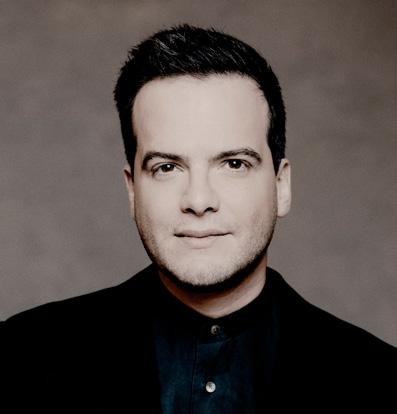
Francesco Piemontesi is a pianist of exceptional refinement of expression allied to consummate technical skill. Widely renowned for his interpretations of Mozart and the early Romantic repertoire, he also has a close affinity with the later 19th-century and 20th-century repertoire of Brahms, Liszt, Dvořák, Ravel, Debussy and Bartók.
Piemontesi has appeared in many prestigious venues, including the Amsterdam Concertgebouw, Berlin Philharmonie, Vienna Musikverein, London’s Wigmore Hall, Carnegie Hall and Avery Fisher Hall in New York and Suntory Hall Tokyo. He has performed at the Salzburg, Lucerne, Edinburgh, Verbier and Aixen-Provence festivals, La Roque-d’Anthéron, Schleswig-Holstein and MecklenburgVorpommern festivals and at New York’s Mostly Mozart Festival.
Recent highlights include engagements with the London Philharmonic Orchestra and Robin Ticciati, Bergen Philharmonic Orchestra,
In 2019 he released Schubert Last Piano Sonatas on the Pentatone label. Previous recordings include Liszt’s Années de pèlerinage, Mozart Piano Concertos with the Scottish Chamber Orchestra and Andrew Manze on Linn, and Debussy’s Préludes and Mozart solo piano works for Naïve.
Born in Locarno, Switzerland, Francesco Piemontesi studied with Arie Vardi before working with Alfred Brendel, Murray Perahia, Cécile Ousset and Alexis Weissenberg. He rose to international prominence with prizes at several major competitions, including the 2007 Queen Elisabeth Competition. Since 2012 he has been the Artistic Director of the Settimane Musicali di Ascona.
In November 2021 Thomas conducted the RSNO in the world premiere of Detlev Glanert’s Violin Concerto No2 To the Immortal Beloved (with Midori) during the 2021 United Nations Climate Change Conference (COP26) held in Glasgow. Recent highlights with the RSNO have included tours to China and the US, the premiere of Wynton Marsalis’ Violin Concerto with Nicola Benedetti (also at the 2022 BBC Proms) and much-praised performances at the Edinburgh Festival.
Danish conductor Thomas Søndergård has been Music Director of the RSNO since the 2018:19 Season, following six seasons as Principal Guest Conductor. From 2012 to 2018 he was Principal Conductor of the BBC National Orchestra of Wales (BBC NOW), after stepping down as Principal Conductor and Musical Advisor of the Norwegian Radio Orchestra. He becomes Music Director of the Minnesota Orchestra in September 2023.

Thomas has appeared with many notable orchestras in leading European centres, such as Berlin (including the Berliner Philharmoniker, Rundfunk-Sinfonieorchester Berlin, Mahler Chamber Orchestra), Leipzig (Gewandhausorchester), Paris (Orchestre National de France), London (London Philharmonic, BBC Symphony, London Symphony and Philharmonia), Amsterdam and Rotterdam (Royal Concertgebouw, Netherlands Philharmonic, Rotterdam Philharmonic), and throughout Scandinavia. North American appearances have included the orchestras of Chicago, Toronto, Atlanta, Vancouver, Houston and Seattle.
Following his acclaimed debut for Royal Danish Opera with Poul Ruders’ Kafka’s Trial, Thomas has returned regularly to conduct repertoire ranging from contemporary to Le nozze di Figaro, Il barbiere di Siviglia, La bohème, The Cunning Little Vixen and Il viaggio a Reims, and has made short concert tours with the Royal Danish Orchestra. He has also enjoyed successful collaborations with Norwegian Opera and Royal Swedish Opera. His Stockholm productions of Tosca and Turandot (both with Nina Stemme) led to his Bayerische Staatsoper debut, conducting main season and Opera Festival performances of Turandot with Stemme. He made his Deutsche Oper Berlin debut with the world premiere of Andrea Lorenzo Scartazzini’s Edward II and has since returned for Berlioz’s Romeo and Juliet
Thomas has recorded with violinist Vilde Frang and the WDR Köln and cellist Johannes Moser and the Rundfunk-Sinfonieorchester Berlin, and the music of Poul Ruders with the Aarhus Symphony, Norwegian Radio Orchestra and Royal Danish Opera. For Linn Records he has recorded Sibelius symphonies and tone poems with the BBC NOW, and Prokofiev symphonies 1 and 5 and Richard Strauss’ Ein Heldenleben with the RSNO.
Formed in 1891 as the Scottish Orchestra, the company became the Scottish National Orchestra in 1950, and was awarded Royal Patronage in 1977. The Orchestra’s artistic team is led by Danish conductor Thomas Søndergård, who was appointed RSNO Music Director in October 2018, having previously held the position of Principal Guest Conductor. Hong Kong-born conductor Elim Chan succeeds Søndergård as Principal Guest Conductor.

The RSNO performs across Scotland, including concerts in Glasgow, Edinburgh, Dundee, Aberdeen, Perth and Inverness. The Orchestra appears regularly at the Edinburgh International Festival and the BBC Proms, and has made recent tours to the USA, China and Europe.
The Orchestra is joined for choral performances by the RSNO Chorus, directed by Stephen Doughty. The RSNO Chorus evolved from a choir formed in 1843 to sing the first full performance of Handel’s Messiah in Scotland. Today, the RSNO Chorus is one of the most distinguished large symphonic choruses in Britain. The Chorus has performed nearly every work in the standard choral repertoire, along with contemporary works by composers including John Adams, Howard Shore and Sir James MacMillan.
The RSNO has a worldwide reputation for the quality of its recordings, receiving a 2020 Gramophone Classical Music Award for Chopin’s Piano Concertos (soloist: Benjamin Grosvenor), conducted by Elim Chan; two Diapason d’Or awards for Symphonic Music (Denève/Roussel 2007; Denève/Debussy 2012) and eight GRAMMY Awards nominations. Over 200 releases are available, including Thomas Søndergård conducting Strauss (Ein Heldenleben, Der Rosenkavalier Suite) and Prokofiev (Symphonies Nos1 and 5), the complete symphonies of Sibelius (Gibson), Prokofiev (Järvi), Bruckner (Tintner) and Roussel (Denève), as well as further discs championing the music of William Grant Still (Eisenberg), Xiaogang Ye (Serebrier) and Thomas Wilson (Macdonald).
The RSNO’s pioneering learning and engagement programme, Music for Life, aims to engage the people of Scotland with music across key stages of life: Early Years, Nurseries and Schools, Teenagers and Students, Families, Accessing Lives, Working Lives and Retired and Later Life. The team is committed to placing the Orchestra at the centre of Scottish communities via workshops and annual residencies.
FIRST VIOLIN
Maya Iwabuchi
LEADER
Tamás Fejes
ASSISTANT LEADER
Patrick Curlett
Evgeny Makhtin
Wen Wang Caroline Parry
Ursula Heidecker Allen Elizabeth Bamping Lorna Rough Susannah Lowdon
Alan Manson Liam Lynch Laura Embrey Jane Lemoine
SECOND VIOLIN
Teresa Krahnert GUEST PRINCIPAL Jacqueline Speirs Marion Wilson Nigel Mason Paul Medd Harriet Hunter
Anne Bünemann Sophie Lang Robin Wilson John Robinson Sharon Haslam Helena Quispe
VIOLA
Tom Dunn PRINCIPAL
Felix Tanner
Asher Zaccardelli
Susan Buchan
Lisa Rourke
Claire Dunn
Maria Trittinger
Francesca Hunt Sarah Green
David McCreadie
CELLO
Betsy Taylor
ASSOCIATE PRINCIPAL Kennedy Leitch Sarah Digger
Robert Anderson Gunda Baranuaskaitė Bill Paterson
Miranda Phythian-Adams Susan Dance
DOUBLE BASS Pete Fry GUEST PRINCIPAL Michael Rae Moray Jones Kirsty Matheson Sophie Butler Alan Brown
FLUTE Katherine Bryan PRINCIPAL Oliver Roberts
OBOE Adrian Wilson PRINCIPAL Henry Clay
CLARINET Timothy Orpen PRINCIPAL Matt Larsen
BASSOON David Hubbard PRINCIPAL Luis Eisen Paolo Dutto PRINCIPAL CONTRABASSOON
HORN Christopher Gough PRINCIPAL Alison Murray Andrew McLean David McClenaghan Martin Murphy
TRUMPET Christopher Hart PRINCIPAL Ruby Orlowska
TROMBONE
Dávur Juul Magnussen PRINCIPAL Lance Green Alastair Sinclair PRINCIPAL BASS TROMBONE
TUBA John Whitener PRINCIPAL
TIMPANI Paul Philbert PRINCIPAL
PERCUSSION
Simon Lowdon PRINCIPAL John Poulter
HARP Pippa Tunnell

Our charity rescues and restores historic buildings, transforming them into uplifting holiday accommodation. Escape the everyday in castles, forts, towers and cottages across Scotland and beyond. landmarktrust.org.uk/rsno
 The Pineapple, Dunmore
The Pineapple, Dunmore
I am honoured and extremely proud to be Music Director of the RSNO. It is through the continued generosity of you, our friends, donors and supporters, that we can continue to achieve and realise the most ambitious goals of the Orchestra.
One of the wonders of the RSNO is how it brings high-quality music not only to concert halls, but to the wider community. From hospital settings to care homes, from our Astar app for families with newborns to our National Schools Concert Programme, our music touches so many lives in Scotland and beyond.
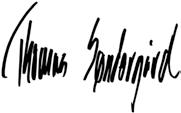
RSNO Benefactors are beacons of philanthropic inspiration, providing truly transformative financial support to the Orchestra that enables us to build and deliver long-term strategic plans. Benefactors share the RSNO’s vision
Your support is the cornerstone of all that we do, as it allows us to continually build and develop.
Thank you for being part of this wonderful Orchestra’s journey, as we adapt and grow towards a bright future.
for orchestral music and work with us to drive the organisation forward, helping us to realise our future plans and ambitions. Sir Ewan and Lady Brown
The RSNO Conductors’ Circle is an inspirational group of individual supporters at the heart of the RSNO’s Individual Giving programme. Our members’ annual philanthropic gifts enable us to realise the Orchestra’s most ambitious goals. Conductors’ Circle members support inspirational concert performances for our audiences alongside transformational education programmes in communities across Scotland, via our ground-breaking initiative Music for Life.
The RSNO is very grateful for the continued support of its Conductors’ Circle: Ardgowan Charitable Trust Geoff and Mary Ball Stina Bruce Jones
Ian and Evelyn Crombie Carol Grigor and the Trustees of Dunard Fund Gavin and Kate Gemmell Kenneth and Julia Greig Ms Chris Grace Hartness Kat Heathcote and Iain Macneil Bruce and Caroline Minto David and Alix Stevenson Eric and Karen Young
We would also like to thank those generous donors who wish to remain anonymous.
For more information on becoming a Benefactor or part of the Conductors’ Circle, please contact Jenny McNeely at jenny.mcneely@rsno.org.uk
From musical activities in schools with the musicians of the future to working in community venues across Scotland, as a Chair Patron you are enabling RSNO musicians to explore the many facets of their art and the positive impact it has on people’s lives. Supporting an individual musician puts you at the heart of the RSNO family. You’re connected directly to the musicians on stage and get to enjoy privileged behind-the-scenes access. RSNO musicians truly appreciate our Chair Patrons and enjoy developing personal relationships with our supporters.
Assistant Conductor
Kellen Gray
The Solti Foundation Chair
First Violin
Maya Iwabuchi LEADER
Sharon Roffman LEADER
Dunard Fund Chair
Tamás Fejes ASSISTANT LEADER
The Bill and Rosalind Gregson Chair
Patrick Curlett
ASSISTANT PRINCIPAL
The RSNO Circle Chair
Alan Manson
The Hugh and Linda Bruce-Watt Chair
Elizabeth Bamping
The WL and Vera Heywood Chair
Ursula Heidecker Allen
The James and Iris Miller Chair
Lorna Rough
The Hilda Munro Chair
Second Violin
Sophie Lang
The Ian and Evelyn Crombie Chair
Viola
Tom Dunn PRINCIPAL
The Cathy & Keith MacGillivray Chair
Lisa Rourke SUB PRINCIPAL
The Meta Ramsay Chair
Francesca Hunt
The Rolf and Celia Thornqvist Chair
Cello
Betsy Taylor
ASSOCIATE PRINCIPAL
The Maxwell Armstrong Chair
Kennedy Leitch
ASSISTANT PRINCIPAL
The David and Anne Smith Chair
Rachael Lee
The Christine and Arthur Hamilton Chair
Double Bass
Michael Rae James Wood Bequest Fund Chair
With thanks to the Gregor Forbes John Clark Chair for its support of the RSNO Double Bass section
Flute
Katherine Bryan PRINCIPAL
The David and Anne Smith Chair
Helen Brew ASSISTANT PRINCIPAL The Gordon Fraser Charitable Trust Chair
Oboe
Adrian Wilson PRINCIPAL The Hedley Wright Chair
Peter Dykes
ASSOCIATE PRINCIPAL Witherby Publishing Group Charitable Trust Chair
Cor Anglais
Henry Clay PRINCIPAL
In memory of a dear friend, Fiona H Bassoon
David Hubbard PRINCIPAL The James and Morag Anderson Chair
Horn
Christopher Gough PRINCIPAL
The Springbank Distillers Chair
Martin Murphy
ASSISTANT PRINCIPAL
The John Mather Trust’s Rising Star Chair
Alison Murray
ASSISTANT PRINCIPAL
Mr & Mrs Pierre and Alison Girard
David McClenaghan
The J & A Mitchell Chair
Christopher Hart PRINCIPAL Ms Chris Grace Hartness
Marcus Pope SUB PRINCIPAL The Nigel and Margot Russell Chair
Trombone Dávur Juul Magnussen
PRINCIPAL The Mitchell’s Glengyle Chair
Lance Green
ASSOCIATE PRINCIPAL The William Cadenhead Chair
Timpani
Paul Philbert
Ms Chris Grace Hartness
Percussion
John Poulter
ASSOCIATE PRINCIPAL The Dot and Syd Taft Chair
Library and Orchestra Assistant Xander van Vliet The Hilda Munro Chair
We would like to acknowledge the generous contribution of Mr Hedley Wright in supporting the RSNO Chair Patron Programme.
Our Learning and Engagement activity is structured around our Music for Life programme. From apps for babies to concerts and workshops for school children, and lunchtime concerts for older adults, the range of projects is vast. As a Patron, you will have access to our projects to bring you closer to the communities we serve across Scotland.
William Brown, W.S.
Neil and Nicola Gordon
Professor Gillian Mead, FRSE
Mr Maurice Taylor CBE
RSNO Principal Oboe, Adrian Wilson
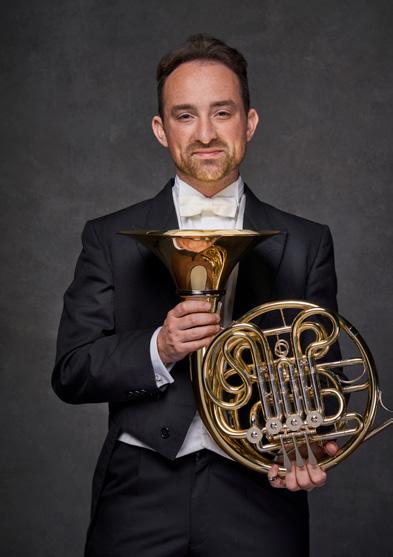
Witherby Publishing Group Charitable Trust
The RSNO is dedicated to bringing new works and outstanding new talent to audiences across Scotland. Our New Works Patrons contribute a significant legacy to orchestral music that extends beyond the RSNO, providing new music for orchestras and audiences around the world – for generations to come.
New Works Patron
Susie Thomson
We are also grateful to those who give but wish to remain anonymous.
If you would like more information or would like to discuss how you can become part of the RSNO Family of Supporters, please contact Jenny McNeely, Head of Individual Giving and Partnerships, at jenny.mcneely@rsno.org.uk
We would like to thank all those who have donated to our new Play Your Part Appeal. The generosity of our supporters at this time is deeply appreciated.

We all have special Musical Memories. It could be learning to play an instrument when you were a child, or a special piece of music that just left you breathless the first time you heard the Orchestra play it. Maybe it was seeing a soloist you had always wanted to hear, or just a great concert shared with friends. Memories such as these make music such an important part of our lives.
Leaving a gift to the RSNO in your will is the single most important way you can help us to make music and to create memories. Your legacy will support the work of the Orchestra for years to come, ensuring that we can continue to bring great music to a new generation of children, young people and adults right across Scotland.
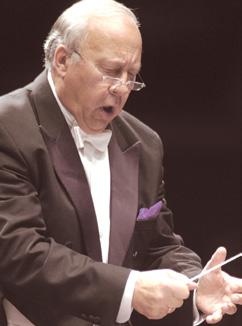
It is easy to leave a gift. After you have made provisions for family and friends, please think of the Orchestra.
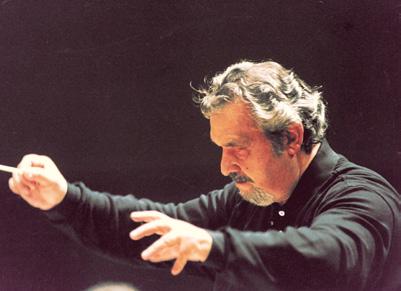
Your gift is important to us and to everyone in Scotland who enjoys music. Contact your solicitor to draft a will or add a codicil to your current will.

If your estate is subject to inheritance tax, a gift to a charity, such as the RSNO, is tax-free and will reduce the amount of tax payable to the Government. Please ask your solicitor for details.
For more information please visit rsno.org.uk/memories



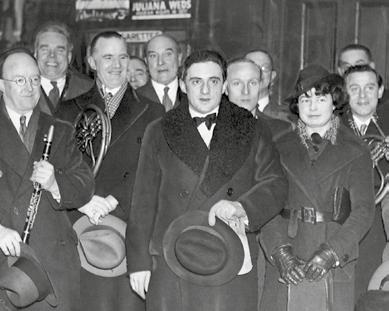


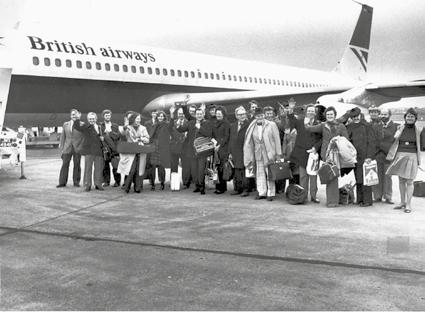
If you would like to discuss this further, please contact Torran McEwan, Individual Giving and Partnerships Officer, in the strictest confidence, at torran.mcewan@rsno.org.uk
To the many among you who have pledged to leave a gift already – thank you.
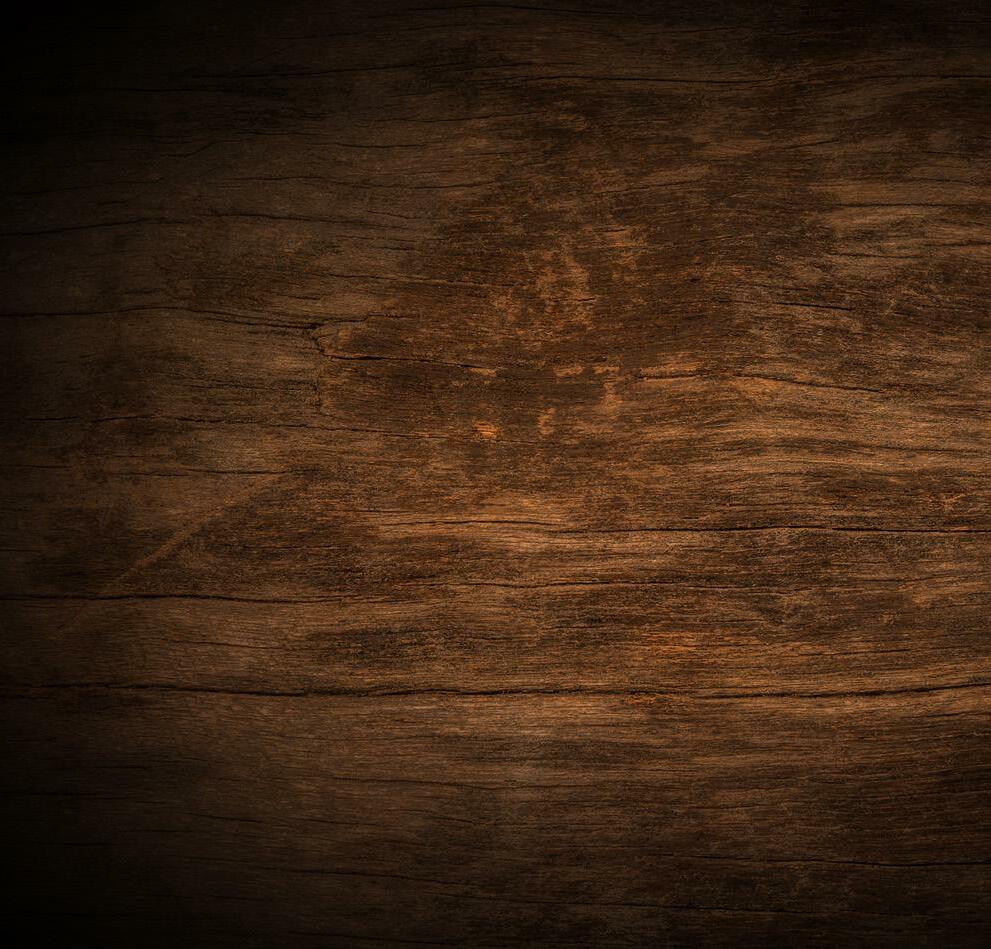
 Beethoven’s
Beethoven’s
Charitable trusts and foundations have a distinguished history of supporting the RSNO, both on and off stage. From one-off donations for specific projects to multi-year funding for our flagship outreach initiatives, including the National Schools Concert Programme and Young Creatives, every grant in support of our work is truly appreciated. We are grateful to the following trusts and foundations for their generosity:
Aberdeen Endowments Trust
Alexander Moncur Trust
Alma & Leslie Wolfson Charitable Trust
Balgay Children’s Society
Barrack Charitable Trust
Bòrd na Gàidhlig
Boris Karloff Charitable Foundation
Castansa Trust
CMS Charitable Trust
Cookie Matheson Charitable Trust
Cruach Trust
Cruden Foundation
David and June Gordon Memorial Trust
D’Oyly Carte Charitable Trust
Dunclay Charitable Trust Educational Institute of Scotland
Ettrick Charitable Trust
Fenton Arts Trust
Forteviot Charitable Trust Foundation Scotland
Gaelic Language Promotion Trust Gannochy Trust
Gordon Fraser Charitable Trust
Harbinson Charitable Trust
Hugh Fraser Foundation
Idlewild Trust
James Wood Bequest Fund
Jean & Roger Miller’s Charitable Trust
Jennie S Gordon Memorial Foundation
Jimmie Cairncross Charitable Trust
John Mather Charitable Trust
John Scott Trust Fund
Jones Family Charitable Trust
JTH Charitable Trust
Leach Family Charitable Trust
Leng Charitable Trust
Mary Janet King Fund
McGlashan Charitable Trust
McLay Dementia Trust
MEB Charitable Trust
Meikle Foundation
Mickel Fund
Murdoch Forrest Charitable Trust
Music Reprieval Trust
Nancie Massey Charitable Trust
Noël Coward Foundation
Northwood Charitable Trust
P F Charitable Trust
Pump House Trust
Q Charitable Trust
Ronald Miller Foundation
R J Larg Family Trust Russell Trust
RVW Trust
Scops Arts Trust
Scott Davidson Charitable Trust Solti Foundation
Souter Charitable Trust Stevenston Charitable Trust
Sylvia Aitken Charitable Trust Tay Charitable Trust Thomson Charitable Trust Thriplow Charitable Trust Tillyloss Trust
Verden Sykes Trust

WA Cargill Fund
Walter Craig Charitable Trust Walter Scott Giving Group Walton Foundation Wavendon Foundation William Syson Foundation Zich Trust

We are also grateful to a number of trusts that wish to stay anonymous.
If you would like more information about our work and how you can make a difference, please contact Naomi Stewart, Head of Trusts and Projects, at naomi.stewart@rsno.org.uk


The Circle is a vital part of the RSNO family. Our community of music-lovers inspire and support us. Supporting us by joining the Circle will help us to bring music to so many people, from our Learning and Engagement programmes to our brand-new digital performances. As part of our community and family, we will keep in touch with our exclusive magazine Inner Circle, our Circle member webpage and invitations to special events throughout the year.
To find out more about joining the Circle please visit rsno.org.uk/circle or get in touch with Torran McEwan, Individual Giving and Partnerships Officer, at torran.mcewan@rsno.org.uk
To all our existing Circle members, thank you. Thank you for your unwavering support that allows us to continue sharing the joy of music.
Ms Catherine Y Alexander
Mrs A M Bennett
Mr Alan and Mrs Carolyn Bonnyman
Dame Susan and Mr John Bruce
Mrs Stina Bruce-Jones
Stephen and Morny Carter
Francesca and Eoghan Contini Mackie
Sir Sandy and Lady Crombie
Gavin and Kate Gemmell
Dr M I and Mrs C R Gordon
Scott and Frieda Grier
Judith and David Halkerston
Iain MacNeil and Kat Heathcote
Miss A McGrory
Miss M Michie
Mr James Miller CBE
Nicholas and Alison Muntz
Meta Ramsay
Mr George Ritchie
Mr P Rollinson
Mr and Mrs W Semple
Mr Ian Taft
Claire and Mark Urquhart
Raymond and Brenda Williamson Mr Hedley G Wright
Mr Anderson
Mr W Berry
Mr John Brownlie
Miss L Buist
Mr and Mrs J K Burleigh
Mrs E Gibb
Mr I Gow
Mr J D Home
Mrs J Kennedy
Mrs A Lamont
Mr I C MacNicol
Professor J and Mrs S Mavor
Mrs McQueen
Mrs A McQueen
Morag Millar
Mr Miller
Mrs A Morrison
Graham and Elizabeth Morton
Mr and Mrs David Robinson
Mr D Rogerson
Mrs Ann M Stephen
Mr Alistair M and Mrs Mandy Struthers
Mr and Mrs M Whelan
Dr K Chapman and Ms S Adam
Mr A Alstead
Mr N Barton
Miss D Blackie
Mr L Borwick
Neil and Karin Bowman
Dr C M Bronte-Stewart
Dr F L Brown
Mr and Mrs Burnside
Ms H Calvert
Mr A Campbell
Sir Graeme and Lady Catto Mr R Cavanagh
Myk Cichla Dr J Coleiro Ms R Cormack
Mr and Mrs B H Cross Christine and Jo Danbolt Mr P Davidson Mr J Diamond
Mr S Dunn Mr C Ffoulkes
Mr and Mrs M Gilbert
Professor J R and Mrs C M Gray Mrs S Hawthorn
Richard and Linda Holden
Mr N Jack
Ms H Kay
Mr and Mrs W Kean
Mrs M King
Norman and Christine Lessels
Mr R M Love
Mr D MacPherson
Mr R G Madden
Mrs K Mair
Mr and Mrs Marwick
Mr S Marwick
Mr and Mrs G McAllister
Ms M McDougall
Mr Rod McLoughlin Mrs B Morinaud
Mr A Morrison
Dr and Mrs D Mowle
Dr C C and Mr K R Parish
Mr I Percival
Mr and Mrs D Pirie
Ms A and Miss I Reeve Mrs E Robertson Miss L E Robertson
Mr D Rogerson
Ross family
Dr and Mrs G K Simpson
Mr and Mrs A Stewart Mrs M Stirling Mr G Stronach
Dr G R Sutherland Mr I Szymanski Mr and Dr Tom Thomson Mr J B and Mrs M B Watson Mr and Mrs D Weetman Mrs Wigglesworth Mr and Mrs Zuckert
Ms S Ace Mr K Allen Mrs P Anderson Ms D Baines Mr O Balfour Mr N Barton Dr A D Beattie Mrs H Benzie Mr R Billingham Dr and Mrs Blake Lord and Lady Borthwick Rev P Boylan John Bradshaw and Shiona Mackie
Mr and Mrs Bryan Lady J Bute Mrs C Campbell
Miss S M Carlyon
Mr J Claxon
Lady Coulsfield Adam and Lesley Cumming
Ms K Cunningham Mr F Dalziel and Mrs S Walsh
Dr J K and Mrs E E Davidson Mr and Mrs K B Dietz
Mrs C Donald
J Donald and L Knifton
Ms P Dow
Mrs P du Feu
Mr John Duffy
Mr and Mrs M Dunbar
Mr R M Duncan
Brigadier and Mrs C C Dunphie
Mrs E Egan
Mr R Ellis
Miss L Emslie
Mr R B Erskine
Dr E Evans Mr D Fraser
Mr D and Mrs A Fraser
Mr D Frew
Ms J Gardner
Dr P and Dr K Gaskell
Mr W G Geddes
Mrs M Gibson
Mr D Gibson
Mr and Mrs A Gilchrist
Mrs M Gillan
Mr R M Godfrey
Mrs J K Gowans
Dr J and Mrs H Graham
Professor and Mrs A R Grieve
Mr and Mrs G Y Haig
Lord and Lady Hamilton
Dr P J Harper
Mrs I Harris
Dr N Harrison
Mr and Mrs R J Hart
Mr D Hartman
Ms V Harvey
P Hayes
Dr and Mrs P Heywood
Bobby and Rhona Hogg
Ms J Hope
Mr R Horne
Mr and Mrs F Howell
Mr A Hunter
Mrs A S Hunter
Professor R N Ibbett

Ms J Incecik
Mr A Kilpatrick
Professor and Mrs E W Laing
Ms K Lang
Mr J P Lawson
Mr and Mrs J Lawson
G E Lewis
Dr D A Lunt
Mrs Lesley P Lyon
Mr and Mrs R MacCormick
Mr D MacDonald
Mr and Mrs MacGillivray
Lady Lucinda L Mackay
Dr A K and Mrs J C Martin
Mr and Mrs J Martin
Mr and Mrs D H Marwick
Ms S McArthur
Mr G McCormack
Mrs L McCormick
Mrs M McDonald
Mr M McGarvie
Dr Colin McHardy Dr A H McKee
Mr Patrick McKeever Mr G McKeown Ms H L McLaren Mrs E McLean
Mr D McNaughton
Professor Mead Mr and Mrs B Mellon Mr G Millar
Mr I Mills
Mrs P Molyneaux
Mr B Moon
Mr R Morley
Mr B and Mrs C Nelson
Mr and Mrs K O’Hare
Professor Stephen Osborne and Frank Osborne
Mr and Mrs K Osborne
Dr G Osbourne
Ms S Park
Mr R Parry
Misses J and M Penman
Dr M Porteous
Mr J W Pottinger
Miss J A Raiker
Mr W Ramage
Mr M Rattray Ms F Reith
Mrs D A Riley
Dr and Mrs D Robb Mrs A Robertson
Mr I Robertson
Mr H and Mrs J Robson Ms A Robson Mrs E K Ross F Scott
Mrs S Scott Mrs J Shanks
Mr J A Shipley
Dr M J and Mrs J A Shirreffs
Mr E Simmons
Dr Colin and Mrs Kathleen Sinclair
Mr M Smith
Mr M J Smith
Mrs E Smith
Mr M A Snider
Dr and Mrs B Stack
Mrs Lorna Statham
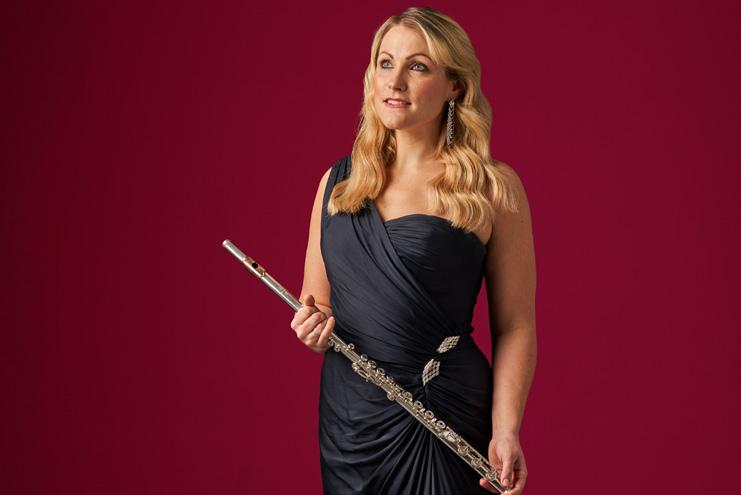
Mrs T Stevenson Rev N and Mr R Stewart Mrs R F Stewart
Mr and Mrs Struthers
Mr and Mrs B Tait Dr and Mrs T Thomson Mr C Turnbull Dr S Tweedie
Dr Morag Ward
Mr Nelson and Mrs Barbara Waters
Mr W Watters
Dr and Mrs T Weakley Mrs V Wells
Mr G West Miss M Whitelaw
Dr and Mrs D T Williams
Mr D Woolgar Mr R Young Mr C and Mrs L Yule
Thank you to all our members of the Circle, including those who wish to remain anonymous. Every one of you makes a real difference.





RSNO: Scotland’s National Orchestra
Her Late Majesty The Queen
Dame Susan Bruce DBE
CHAIR
John Heasley
HONORARY TREASURER
Kat Heathcote
Linda Holden
Neil McLennan
Costa Pilavachi
Alistair Mackie
Phoebe Connolly
EXECUTIVE ASSISTANT
Nicola Shephard EXECUTIVE ASSISTANT (MATERNITY LEAVE)
Dr Ingrid Bols
PLANNING OFFICER
Michael Cameron
DRIVER AND DEPUTY STAGE MANAGER
Emma Hunter DEPUTY ORCHESTRA MANAGER
Ewen McKay
HEAD OF ORCHESTRA MANAGEMENT
Jim O’Brien
DRIVER AND ORCHESTRA TECHNICIAN
Richard Payne
LIBRARIAN
Tammo Schuelke
HEAD OF PLANNING
STAGE AND PRODUCTION MANAGER
Matthias Van Der Swaagh
CONCERTS ASSISTANT
Xander van Vliet
LIBRARY ASSISTANT
Christine Walker CHORUS MANAGER
Andrew Stevenson
DIRECTOR OF LEARNING AND ENGAGEMENT
Samantha Campbell HEAD OF LEARNING AND ENGAGEMENT (MATERNITY LEAVE)
David Robinson
Gurjit Singh Lalli
Jane Wood
Helen Brew
David Hubbard
Dávur Juul Magnussen
Sophie Lang
Paul Philbert
Lorna Rough
Hannah Gardner Seavey
COMMUNITY AND WELLBEING COORDINATOR
Chrissie Johnson
PROJECT MANAGER
Rosie Kenneally
LEARNING AND ENGAGEMENT OFFICER
Rachel O’Connor
CREATIVE ASSISTANT
Rachel Pyke
PROJECT MANAGER
Dr Jane Donald
DIRECTOR OF EXTERNAL RELATIONS
Lisa Ballantyne
PARTNERSHIPS OFFICER
Ian Brooke
PROGRAMMES EDITOR
Rosie Clark
EXTERNAL RELATIONS ADMINISTRATOR
Jessica Cowley
MARKETING MANAGER
Carol Fleming
HEAD OF MARKETING
Constance Fraser
COMMUNICATIONS AND MARKETING OFFICER
Torran McEwan
INDIVIDUAL GIVING AND PARTNERSHIPS OFFICER
Jenny McNeely
HEAD OF INDIVIDUAL GIVING AND PARTNERSHIPS
Mirienne McMillan
SALES OFFICER
Graham Ramage
GRAPHICS AND NEW MEDIA DESIGNER
Kirsten Reid
TRUSTS AND PROJECTS COORDINATOR
Cllr Edward Thornley
THE CITY OF EDINBURGH COUNCIL
Company Secretary
Gordon Murray
RSNO COUNCIL
Baroness Ramsay of Cartvale CHAIR
Ms Ruth Wishart
Dr Naomi Stewart
HEAD OF TRUSTS AND PROJECTS
Sam Stone
INFORMATION SERVICES MANAGER
FINANCE AND CORPORATE SERVICES
Angela Moreland
CHIEF OPERATING OFFICER
Abby Dennison
FINANCE ADMINISTRATOR
Alice Gibson
FINANCE ADMINISTRATOR
Ted Howie
FACILITIES COORDINATOR
Lorimer Macandrew
VIDEO PRODUCER
Sam McErlean
SOUND ENGINEERING INTERN
Irene McPhail
ACCOUNTS AND PAYROLL ASSISTANT
Calum Mitchell
VIDEO PRODUCTION INTERN
Hedd Morfett-Jones
DIGITAL MANAGER
Susan Rennie
FINANCE MANAGER
Jade Wilson
FINANCE ASSISTANT
Royal Scottish National Orchestra 19 Killermont Street Glasgow G2 3NX
T: +44 (0)141 226 3868 W: rsno.org.uk
Scottish Company No. 27809 Scottish Charity No. SC010702
/royalscottishnationalorchestra @RSNO @rsnoofficial Youtube.com/thersno
The RSNO is one of Scotland’s National Performing Companies, supported by the Scottish Government.
Orchestra list and programme details correct at time of going to print. Contents © Copyright RSNO and named authors.

